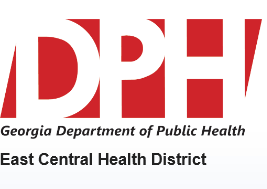Epidemiology is considered the basic science of public health. Through this field of science, diseases can be traced back to their origins and the risk factors of the diseases can be determined. The Epidemiology Department is responsible for district-wide surveillance and investigation of more than 70 notifiable diseases and disease conditions. By determining the who, what, where, when, how, and why related to these diseases and health conditions, appropriate interventions and control measures can be implemented to lessen their health impact.
When an outbreak occurs, immediate action may be needed to prevent or control a situation. In the case of chronic diseases or injuries, more sustained activities may be required to prevent their occurrence or reduce their severity.
Some of the activities within the Epidemiology Department include:
- Conduct active and passive surveillance of diseases and adverse health conditions
- Investigate reports of acute diseases and outbreaks
- Recommend appropriate prevention measures and control
- Monitor and investigate reports of unusual health conditions
- Conduct data analyses and disseminate information from surveillance activities
- Provide guidance for healthcare professionals, facilities, and other agencies and organizations regarding disease prevention and control
- Respond to disease-related inquiries from health care providers, community, and others






